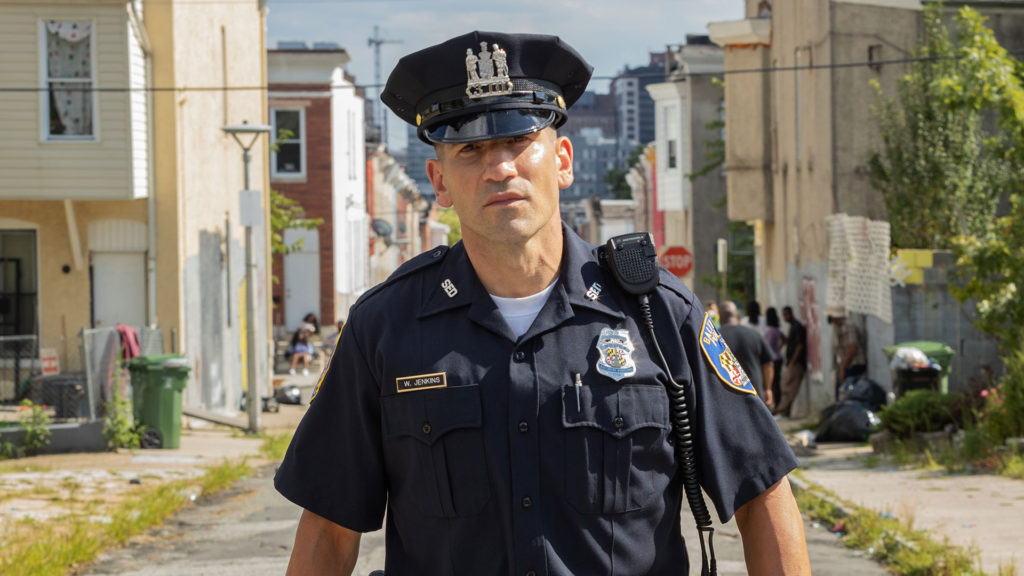If you have watched David Simon’s seminal The Wire– and liked it- We Own This City will probably keep you glued to the screen. The limited series is dripping with meticulous research and has a gritty, brutally honest approach to peeling back the corruption of Baltimore’s police department. It almost feels like an epilogue to The Wire, and the moments where character motivations mesh with real-world issues are where the show truly shines. Unfortunately, We Own This City also sacrifices some of its characters’ development to render them as plot devices to push the story- and the message of the show- along.
We Own This City centers around a variety of characters, with the chief character being Sgt. Wayne Jenkins (Jon Bernthal), who worked his way up the department to the Gun Trace Task Force, learned to routinely abuse civilians he arrested, often on false pretenses, and robbed innocent people and criminals alike while searching their houses. One of the members of his squad, Momodu Gondo (McKinley Belcher III), is caught collaborating with a known drug dealer, which jumpstarts an investigation into the squad. On the other hand, we follow Sean Suiter (Jamie Hector), a detective who used to work with Jenkins and has since tried to go straight, and Nicole Steel (Wunmi Mosaku), who works for the Office of Civil Rights and is trying to grasp the city’s pulse following riots that were started by the death of Freddie Gray, who died because of injuries sustained during police custody.

The cops of We Own This City are almost unrecognizable from the flawed but well-intentioned characters we saw in The Wire. While not all of the police officers shown in this series are bad to the bone, there are definitely more than a few bad apples that are rotten to the core, such as officer Hersl (Josh Charles), who revels in inflicting violence upon black men, sometimes beating them up after apprehending them on the basis of non-existent charges.
We Own This City can be a demanding watch, with three different timelines that are sometimes hard to tell apart, and a sprawling cast of characters.
Yet, if you can stay with the series long enough to get used to it, you will be rewarded with stellar acting, a revealing look at police corruption, and the frustration that comes from seeing righteous characters failing to change the status quo despite trying their best. Jon Bernthal, in particular, turns in an arresting turn as the brash, perennially-criminal Jenkins, showing how he is shaped by his seniors and peers in the force as he starts abusing civilians and robbing them. Jamie Hector is also great as the sympathetic Sean Suiter, especially given the way his story ends. Wunmi Mosaku is slightly wasted as Nicole Steel, as she is mostly used as a mouthpiece for raising the issues plaguing the black residents of Baltimore, although she does get some backstory and character development near the end of the series.
Watching We Own This City can be difficult at times, because it’s almost unbelievable how blatantly policemen can abuse the system and harass civilians.
However, it also makes sure to show how good men and women are fighting against such endemic corruption, despite their hands being tied by the nature of bureaucracy and the changing tides brought about by newly elected officials. The show ends on the perfect note, showcasing how Jenkins truly believed that he was a good man, and that he had a career that could genuinely inspire his peers and new trainees.
Would We Own This City have benefited from more episodes? Sure, but at the same time, it’s better that this is a limited series instead of a multi-season series. The show is dedicated to portraying its subjects with an unwavering degree of brutal honesty and accuracy, and it’s the kind of show that deserves to be made and seen, adding to the conversation around the very timely issue of police violence.